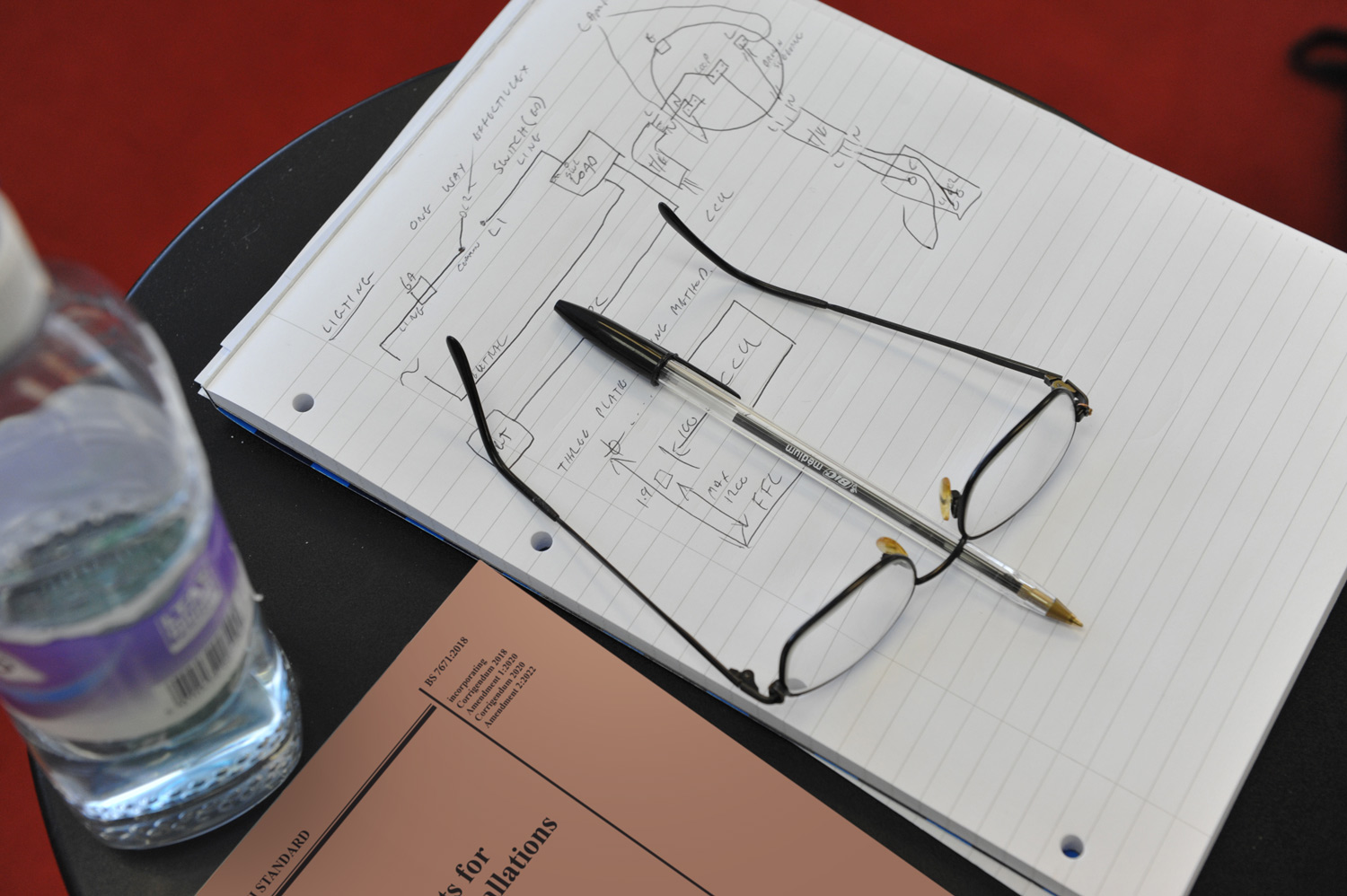Electricians Salaries remain the highest of all trades
Each year we compile a blog post reporting on average salaries based on the data released from the Office of National Statistics (ONS) for those working in the construction industry.
Last year we reported that the average UK salary for an electrician was £30,784. This year, for another year running, it’s been a great period for Sparkies, who not only continue to earn the most of the trades but also see the biggest increase of all at 5%.
Average Electrician Salary (£32,315)
According to the Office of National Statistics the average salary for an electrician in the last year has risen by 5% to £32,315. This is the highest increase seen in the trades with plumbers following at 3.9%.
Average Salaries by Trade
The data below is based on the 2015 and 2018 Annual Survey of Hours and Earnings taken from the Office of National Statistics.
To check out what the average percentage increase has been over the last 12 months please click on the interactive chart below. You will see that most of the trades have seen some impressive increases in pay with electricians still earning the most, and are now earning around £1,260 more than plumbers.


Trades Salary Survey
The figures shown are based on the median value meaning that half will earn more and half will earn less. This is the Office of National Statistics preferred measure of average earnings and is less affected by a relatively small number of very high earners that can skew the data upward. The median average gives a better indication of typical salaries than the mean which shows salaries at £32,627.
How do electricians charge for their time?
When working in someone’s home most electricians will charge a day rate or a fixed rate depending on the job. Electricians who are employed and earn a salary are in the minority with the majority working on a self employed basis.
As a guide you could expect to charge the following for:
- Consumer Unit replacement £350 – £500 (0.5 – 1 day)
- Perform an Electrical Inspection report £90 – £180 (4 – 8 hours)
- Install and supply a double socket £90 – £125 (1 – 3 hours)
- Replace a light fitting £40 – £60 (0.5 – 1 hour)
- Repair a damaged power cable £40 – £50 (0.5 – 1 hour)
- Electric shower installation £250 – £400 (0.5 – 1 day)
- Install an external security light £90 – £140 (1 – 3 hours)
Hourly Rates / Day Rates (£40-£60 Per Hour / £180-£350 Per Day)
Because there are no statistics available on a national level it is quite hard to obtain accurate data regarding how much is actually charged. Also, because most electricians will charge either an hourly rate, day rate or a fixed rate depending on the type of job, their earnings will fluctuate from year to year. Rates can also vary drastically depending on location and experience. However, an experienced electrician working in the South East on average charges £45 per hour or £350 per day.
As you would expect, a self-employed electrician will tend to earn more than someone who is employed. However, you should take into account that there are other costs to consider such as the cost of buying tools, vehicle expenses, business insurance and registration on a competent persons scheme.
As mentioned the average annual salary for electricians is approx. £32K per year, however research suggests that this figure is actually more likely to be around £35-40K and can be higher still for those working in the South East.
What are trainee electrician salaries like? (Around £23K)
Whilst many electricians will start out as an apprentice earning below the minimum wage, they do benefit from being able to gain a qualification whilst earning a wage. The current national minimum wage for an apprentice in their first year is £3.70 per hour, however many employers prefer to pay more with the average salary being approx. £170 per week.
However, there are other options available, and we find that a lot of our customers prefer to front load their training and complete technical certificates first (C&G 2365 Level 2 & 3). This enables students to command a higher starting salary of between £21-25,000 per year when they start working as an electrician’s mate.
JIB Electrician Wage Grades
The JIB publish guidelines to what electricians can earn on their website, however, be aware that not all employers will adhere to these guidelines.
From and including Monday 7th January 2018 the JIB suggests that the national standard rates if you have your own transport are:
- Trainee Electrician – £12.08
- Electrician – £15.05
- Approved Electrician – £16.32
- Site Technician – £18.37
And for those who work in London or the south east you should expect:
- Trainee Electrician – £13.53
- Electrician – £16.86
- Approved Electrician – £18.28
- Site Technician – £20.57
Experience and obtaining further qualifications can help towards achieving higher pay grades:
- Trainee Electrician – apprenticeship or electricians mate usually with C&G 2365 Diplomas
- Electrician – relevant qualifications, Level 3 NVQ & AM2 (C&G 2357)
- Approved Electrician – as per number 2 plus periodic inspection and testing qualification such as the C&G 2391-52
- Site Technician – As per number 3 plus over 5 years’ experience (3 of which in a supervisory role) plus a level 4 qualification such as a HNC
Ways to earn more
The salary ranges reported in this article are only intended as a guideline. Depending on your experience, how many hours you are prepared to put in and how hard you are prepared to work we believe that there is really no limit to what you could potentially earn.
We still believe that becoming an electrician remains a great career choice especially as the demands from the growing housing sector continue to rise. There are also issues around the number of older electricians wanting to retire, which will inevitably lead to further shortfalls in labour required to meet demand.
There are many ways to increase your earning potential, and this really comes down to how much hard work you are willing to put in.
- Agency work – for those starting out working for an agency is a good option. Here you will be able to gain the confidence and experience needed to go out to apply for contracts direct.
- Overtime – For those employed working on a job where deadlines need to be met then overtime is a great way to increase your earnings as this is often paid at a higher hourly rate.
- Up-skilling – to improve your skills set as an electrician, further training is a great way increase your earning potential.
- Self employed – for the more experienced electrician who wishes to work for themselves and apply directly for their own contracts, setting up in business provides the opportunity to increase earnings further.
To help you achieve better pay or a higher grade you might want to consider undertaking the following courses:
C&G 2382-18 18th Edition Course – For anyone working in industry
C&G 2396 Electrical Design course – for Site Technician status
C&G 2391-52 Inspection & Testing Course – for Approved Electrician status
Want to know more about Trade Skills 4U? Find out more about how we provide electrician courses for beginners and experienced electricians or simply view our all electrical courses.
The bottom line is, if you are prepared to work hard, invest in yourself and ensure your work is carried out to a high standard your income as well as your reputation will increase significantly.




















